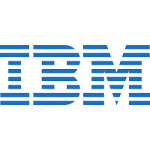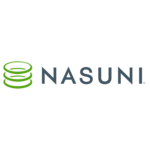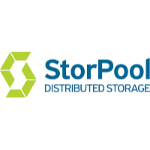TechnologyCounter provides genuine, unbiased real user reviews to help buyers make informed decisions. We may earn a referral fee when you purchase through our links, at no extra cost to you.
List of 15 Best Cloud Storage Software
Showing 1 - 15 of 37 productsGoogle Cloud Storage is a platform that allows users to store, manage, and access their data with ease. Powered by Googles powerful infrastructure, this storage solution offers an array of advanced features and tools to meet the evolving needs of bus...Read Google Cloud Storage Reviews
Azure Storage is a cloud storage solution that allows businesses to store and access large amounts of data from anywhere in the world. With its flexible and scalable storage options, this platform helps organizations easily manage and secure their da...Read Azure Storage Reviews
IBM Cloud Object Storage is a robust, efficient and secure data storage solution designed to meet the constantly evolving needs of businesses. Accessible from anywhere and at any time, it offers unparalleled scalability and reliability, making it the...Read IBM Cloud Object Storage Reviews
Apple iCloud a revolutionary cloud storage and synchronization service designed to seamlessly connect all your Apple devices. Say goodbye to constantly juggling files and data between devices, as iCloud automatically keeps everything up to date and e...Read Apple iCloud Reviews
MediaFire is a highly reliable file hosting and sharing platform that aims to make your digital life easier. With a simple and user-friendly interface, MediaFire allows you to securely store and manage your files, access them from anywhere, and share...Read MediaFire Reviews
Nasuni is a leading name in cloud-based file storage solutions. With innovative technology and secure infrastructure, Nasuni empowers businesses to securely store, access, and collaborate on their critical files from anywhere, at any time. Switch to...Read Nasuni Reviews
Your Secure Cloud is a solution for storing and managing your valuable data and files securely on the cloud. With state-of-the-art encryption security features, you can have peace of mind knowing that your information is safe and easily accessible fr...Read Your Secure Cloud Reviews
Koofr is a cloud storage platform that puts you in control of your digital life. With Koofr, you can easily store, organize, and access all your files from any device, anywhere. Say goodbye to scattered data and hello to a seamless and secure experie...Read Koofr Reviews
StorPool is a software that revolutionizes storage for enterprises of all sizes. With its efficient and scalable design, StorPool maximizes performance and minimizes costs, ensuring seamless data management and high availability. Experience storage s...Read StorPool Reviews
ElephantDrive is a leading cloud-based data management and backup solution for individuals and businesses. With its user-friendly interface and top-notch security features, ElephantDrive provides a reliable and convenient way to store, access, and pr...Read ElephantDrive Reviews
Petofy OPHR is a solution for all your pet management needs. This revolutionary software is designed to simplify and streamline every aspect of pet care, from scheduling appointments and tracking medical records to managing inventory and invoicing. W...Read Petofy OPHR Reviews
ioMoVo, the powerful software solution that revolutionizes how businesses manage their productivity and communication. With its advanced features and user-friendly interface, ioMoVo provides an effortless is a way to streamline operations and stay co...Read ioMoVo Reviews
Are you tired of unreliable and unsafe cloud storage solutions? Look no further than Internxt. Our revolutionary software combines security, efficiency, and ease of use to provide a seamless cloud storage experience. Say goodbye to data breaches and...Read Internxt Reviews
Right Backup is a convenient and reliable solution for storing your valuable data online. With this software, you can rest assured that your important files are safe, even in the event of a lost or damaged device. Simply log in to your account and e...Read Right Backup Reviews
Movebot is a solution for seamless is a data migration. Designed to simplify the process of transferring large amounts of data between systems, Movebot offers a user-friendly platform that ensures accuracy and security. Say goodbye to the hassle of m...Read Movebot Reviews
- What Is Cloud Storage Software?
- Top Reasons Why Businesses Need Cloud Storage Software?
- What Are the Top Key Features of Cloud Storage Software?
- What Are the Top Benefits of Cloud Storage Software?
- What Are the Steps to Choose the Right Cloud Storage Software?
- What Are the Types of Cloud Storage Software for Different Industries?
- What Are the Technology Trends for Best Cloud Storage Software?
- What Are the Deployment Options for Cloud Storage Software?
What Is Cloud Storage Software?
Cloud storage software refers to a specific category of computer applications that enable individuals to securely store their information and retrieve them via internet connectivity. This technological advancement facilitates users in retrieving their data from any internet-connected device, including personal computers, smartphones, and tablets.
Additionally, online storage software offers data backups as a safeguard against potential loss resulting from hardware malfunctions, virus infiltrations, or unanticipated events. One of the primary advantages of cloud storage system is its ability to provide users with convenient and unrestricted access to their data at any location and time.
The best cloud storage software features are particularly advantageous for individuals who may require mobile access to data, such as individuals engaged in distant work. Furthermore, cloud based storage systems facilitate the implementation of granular access control, enabling users to establish specific limitations on the individuals authorized to view particular files or folders.
One additional benefit associated with the utilization of cloud storage software is its potential to yield cost savings in terms of hardware and infrastructure expenditures.
The utilization of cloud storage software has the potential to decrease expenses related to data storage by eliminating the requirement for physical hardware and the accompanying costs of maintenance.
In summary, cloud storage system refers to a category of computer applications that enable anyone to securely store and retrieve data via the internet. This particular technology offers advantages to individuals engaged in remote work, while concurrently yielding cost reductions in terms of hardware and infrastructure expenditures.
Top Reasons Why Businesses Need Cloud Storage Software?
1. Increased Collaboration: A cloud storage system enables teams to effectively exchange and collaborate on documents regardless of their physical location.
2. Scalability: Cloud storage software allows enterprises to efficiently adjust their storage capacity based on consumption, resulting in a more economically advantageous option.
3. Mobility: Cloud based storage systems allow enterprises to efficiently adjust their storage capacity based on consumption, resulting in a more economically advantageous option.
4. Flexibility: The capability to retrieve data from any location and device offers enterprises enhanced flexibility compared to storage solutions that are physically located on-premise.
5. Backup and Disaster Recovery: The storage of data in online storage software enables convenient retrieval in the event of a catastrophic occurrence.
6. Data Security: Cloud storage solutions offer robust security features, including encryption, user authentication, and routine backups.
7. Cost savings: Cloud storage has the potential to provide enterprises with substantial cost reductions in comparison to conventional storage options.
8. Automation: A cloud storage system has the capability to automate several functions, including file backups and synchronization, thereby minimizing the need for user intervention.
9. Business Agility: Online storage software enhances the efficiency and agility of data exchange and access.
10. Improved User Experience: Cloud storage solutions facilitate convenient access to desired information, alleviating the need for users to navigate through numerous tiers of data.
11. Advanced Analytics: The best cloud storage software offers robust analytics and reporting capabilities, enabling enterprises to enhance their decision-making processes.
12. Increased Uptime: Cloud storage solutions are implemented in a cloud-based environment, thereby guaranteeing uninterrupted accessibility to both data and resources.
13. Automated Maintenance: Cloud storage software has the capability to automate mundane maintenance operations, hence allowing for the allocation of resources towards alternative tasks.
14. Customization: Online storage software provides businesses with the opportunity to enhance their operational flexibility and tailor their system to align with their distinct requirements.
15. Integration: The best cloud storage software has the capability to seamlessly interface with many systems, including Customer Relationship Management (CRM) and Enterprise Resource Planning (ERP), thereby facilitating the optimization of operational processes.
What Are the Top Key Features of Cloud Storage Software?
The top key features of cloud storage software include:
1. Accessibility: The ability to conveniently retrieve saved data from any location worldwide, through a variety of devices.
2. Scalability: The capability to increase or decrease storage capacity as desired.
3. Security: The capability to increase or decrease storage capacity as desired.
4. Cost-Efficiency: The payment structure is based only on the system's utilization, leading to a decrease in operational expenses.
5. Mobility: The stored data can be accessed by remote users from any devices, whether they are located within or outside the corporate network.
6. Availability: The cloud storage management tools maintains a high level of uptime and redundancy, hence guaranteeing continuous availability of data.
7. Backup and Recovery: The implementation of backup and restore processes is a straightforward method for safeguarding data.
8. Synchronization: The synchronization of data across several devices and platforms is achievable.
9. Automation: Automation of tasks and processes can lead to enhanced efficiency.
10. Customization: Cloud storage management tools can be customized to align with the specific needs and demands of the organization.
What Are the Top Benefits of Cloud Storage Software?
1. Accessibility: Cloud storage software facilitates convenient access to data. Cloud storage enables users to access data from various places and devices, hence enhancing productivity.
2. Reliability: A cloud storage system has a notable degree of reliability, characterized by a substantial uptime and little latency.
3. Backup: The data is automatically backed up, hence obviating the necessity for manual intervention.
4. Cost-Efficiency: Cloud storage offers organizations the opportunity to effectively minimize their storage expenses by solely paying for the amount of storage they utilize.
5. Security: Cloud storage software incorporates many layers of encryption and security methods in order to safeguard data confidentiality and mitigate unlawful entry.
6. Safeguard Data Loss: The best cloud storage software offers a safeguard against potential data loss, hence facilitating the seamless restoration of data in the event of unforeseen circumstances.
7. Automation: A cloud storage system streamlines many processes, including replication and versioning, thereby enhancing operational efficiency for enterprises.
A cloud based storage systems automation not only saves valuable time but also mitigates the potential risks associated with human data entry, thereby minimizing errors.
What Are the Steps to Choose the Right Cloud Storage Software?
1. Determine the need: When selecting appropriate cloud storage software, it is crucial to ascertain the necessity for cloud storage and establish the specific criteria for the data that requires storage.
Cloud storage management tools encompasses the many categories of data being saved, the magnitude of the data, the requisite storage capacity, and the associated maintenance and support prerequisites.
2. Research the options: After recognizing the specific requirement, it is crucial to conduct thorough research on the many alternatives of cloud storage management software and subsequently analyze and contrast them.
This entails comprehending the characteristics and cost-effectiveness of each alternative, as well as assessing how well it aligns with the specific requirements of your firm.
3. Identify the requirements: After doing a thorough examination of the available alternatives, it is advisable to ascertain the specific criteria that are essential for the A cloud storage system. The aforementioned aspects encompass characteristics, data transmission, expandability, protective measures, storage capabilities, and client assistance.
4. Choose the right provider: Once the identification of requirements has been completed, it becomes crucial to select an appropriate provider of cloud storage software. Cloud storage management tools entails conducting thorough research on the provider's background, comprehending their pricing structure, and evaluating the mechanisms they employ to ensure service reliability.
5. Implement the software: Once the appropriate provider has been selected, the subsequent and last stage involves the implementation of the cloud storage management software. This pertains not only to the technical personnel, but also to comprehending the functions of the team in order to ensure the seamless and secure operation of the system.
What Are the Types of Cloud Storage Software for Different Industries?
There exists a wide array of cloud storage software options tailored to various industries, encompassing enterprise-level solutions as well as cloud storage systems designed for small businesses.
Enterprise-level cloud storage systems that are widely recognized in the industry include Microsoft Azure, Amazon Web Services (AWS), IBM Cloud, and Google Cloud Platform (GCP). These systems are specifically developed to offer enterprises with extensive cloud storage and data services.
Popular cloud based storage systems for small organizations include Dropbox, Google Drive, and iCloud. The aforementioned solutions have been specifically developed to enhance cost-efficiency and enable organizations to securely store and retrieve their documents and data using internet platforms.
In addition, the healthcare sector offers specialized cloud storage solutions that provide secure accessibility to patient data and ensure compliance with data regulations. Some examples of companies in this domain are Atom Data Services, Box, and Iron Mountain Healthcare Services.
The cloud storage management software have been specifically developed to adhere to rigorous industrial norms. Finally, the finance sector possesses its own distinct cloud storage options. Some examples of software products that can be mentioned are Microsoft SQL Server, IBM Blockchain, and Salesforce Financial Services Cloud.
The aforementioned technologies have been specifically developed to enhance the security measures and mitigate compliance concerns within financial institutions.
What Are the Technology Trends for Best Cloud Storage Software?
The landscape of cloud storage software is characterized by a perpetual evolution of technology trends. Presently, the prevailing patterns revolve around the concepts of scalability, security, personalization, and integration. The increasing adoption of cloud-based storage solutions has led to a significant emphasis on scalability as a prominent trend.
Organizations are placing emphasis on the development of infrastructure and provision of services that possess the capability to readily adjust their capacity in accordance with fluctuating demand levels. Security is a prominent consideration among the prevailing trends.
Organizations are integrating more robust authentication procedures, data encryption techniques, and additional security measures in order to safeguard users against data breaches and other forms of unwanted activity. Companies are allocating resources towards personalization in response to the increasing demand for customized cloud storage solutions.
Organizations are currently offering functionalities such as tailored setups, individualized data access, and customised user interfaces. The integration of various elements is considered to be the ultimate trend.
Many cloud storage providers are prioritizing the enhancement of software compatibility with various apps and services in order to augment their adaptability and functionality.
What Are the Deployment Options for Cloud Storage Software?
The deployment alternatives for cloud storage software may generally be classified into two primary classifications: public cloud and private cloud.
1. The term "public cloud" denotes a cloud computing infrastructure that is readily accessible to everyone possessing an internet connection.
Typically, this form of cloud storage is managed by a third-party entity that grants users access to its hosted resources. One advantage of utilizing public cloud storage is its typical implementation on a pay-as-you-go model, enabling enterprises to solely incur costs for the specific resources they consume.
2. In contrast, the private cloud refers to a cloud storage alternative that is constructed and managed by the user within their own environment or localized network.
A cloud storage system particular form of cloud storage offers enhanced control and security, as it grants exclusive access to the user for their resources and data. Private cloud storage offers more opportunities for customization, enabling enterprises to customize their storage solutions according to their unique requirements.















